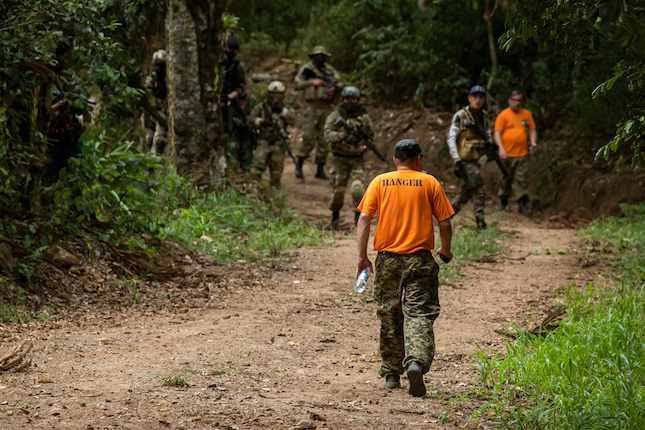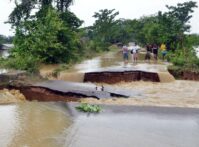-
Climate Change Will Make the Brazilian Military’s Role More Difficult, Finds New Report
December 21, 2020 By Matthew Gallagher
“It is in Brazil’s interest to climate-proof the nation,” said Wilson Center Senior Fellow Sherri Goodman during a recent International Military Council on Climate and Security (IMCCS) event. Referencing a new IMCCS report, Climate and Security in Brazil, Goodman, who is also Secretary General for the IMCCS, said that Brazilian leaders ought to develop counter-deforestation and climate plans as critical elements of the national security agenda.
The report highlights how Brazil’s land use policies, weakened environmental enforcement organizations, and leadership priorities are contributing to the conditions that enable rampant and illegal deforestation in the Amazon, an ecosystem that is considered vital to global climate stability. Oliver-Leighton Barrett, Senior Research Fellow at the Center for Climate and Security and a co-author of the report, said that such conditions are hurting Brazil’s international standing precisely at a time when it is seeking a more active role within international institutions. “Brazil is at an inflection point with regards to its environmental security and to the human, national, and international security that the ecology undergirds,” he said.
Climate change and Amazon management are matters of internal concern as well, write the authors. “Riverine and coastal military infrastructure’s exposure to flooding from sea level rise and extreme rainfall” could impede military readiness. Barrett said that the effects of climate change will be felt across the full range of the Brazilian Armed Forces’ operations—missions, trainings, and installations. At the same time, the report states that “climate change will affect the demand for regional military capabilities and prioritization across all mission sets, with humanitarian assistance and disaster response missions becoming more common.”
IMCCS Director Francesco Femia said, “the message is clear—halt deforestation and recommit to mitigating the scale and scope of climate change, or the security consequences for Brazil will be severe and potentially catastrophic.” These security implications extend to energy, water, and food security. In fact, the report finds that Brazil’s energy and water sectors are already straining under climate-driven, non-traditional rain patterns.
The report offers six recommendations to Brazilian policymakers: protect the Amazon from deforestation; direct the armed forces to assess climate risk to their operations; work with civilian counterparts to mitigate climate change and adapt to sea level rise; incorporate climate lessons into military curricula; and, advance military-led climate security discussions with regional actors. Brazil is “already a leader in many other regards” in the region, said Barrett. By leading on climate security as well, Brazil could earn legitimacy in the eyes of the broader public.
Sources: BBC, Brazilian Business Council for Sustainable Development, International Military Council on Climate and Security, Marine Corps University, World Wildlife Fund
Photo Credit: Ilópolis, Brazil 16.02.2020 Black Jaguar Hill, courtesy of Yago Seben Nor/Shutterstock.com.
 A Publication of the Stimson Center.
A Publication of the Stimson Center.






